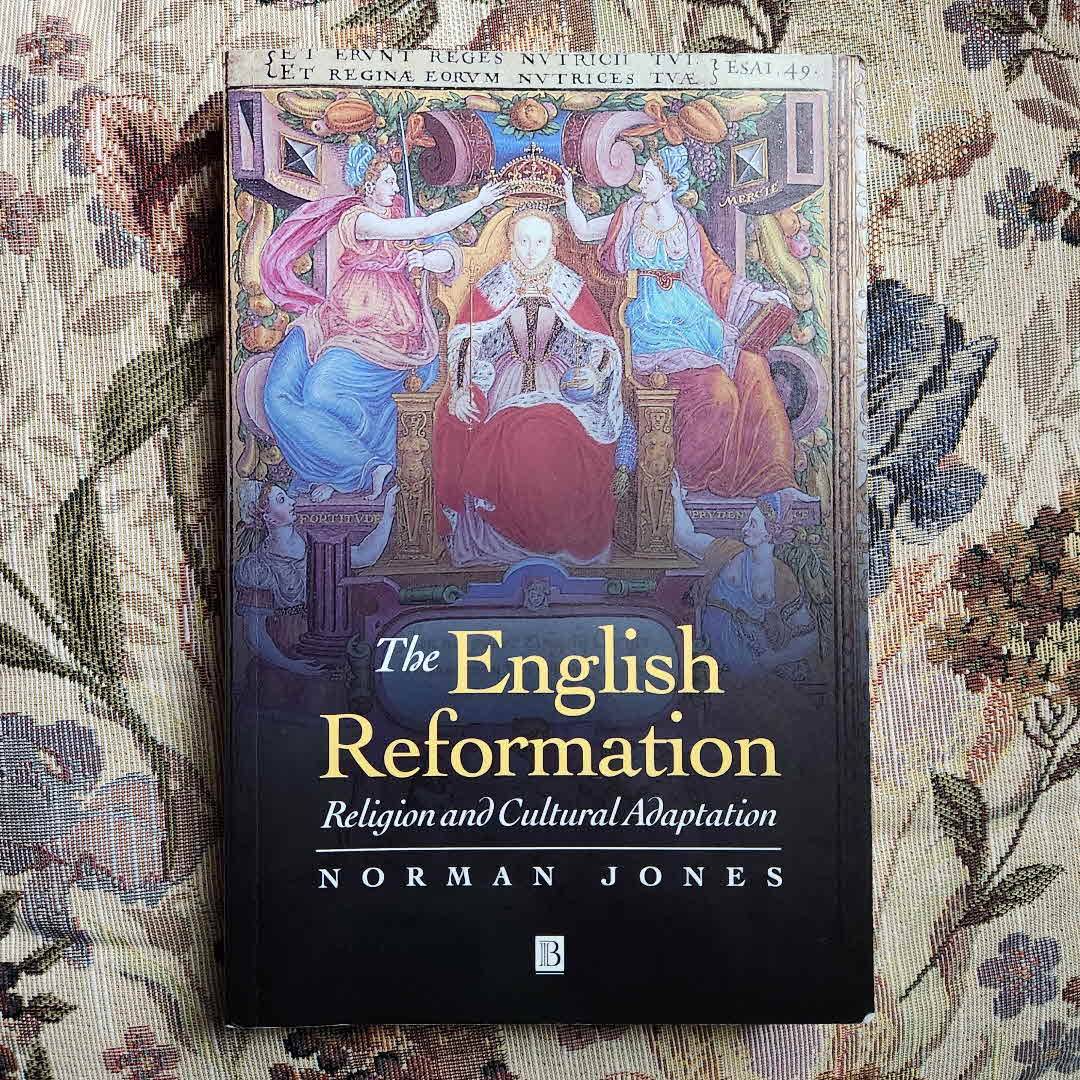
★★★★☆
It was the experience of a lifetime to be led on a tour of Elizabethan sites in England in June, 2023 by the author, my undergraduate professor many years ago.
#UniteAgainstBookBans #LetUtahRead

★★★★☆
It was the experience of a lifetime to be led on a tour of Elizabethan sites in England in June, 2023 by the author, my undergraduate professor many years ago.
#UniteAgainstBookBans #LetUtahRead
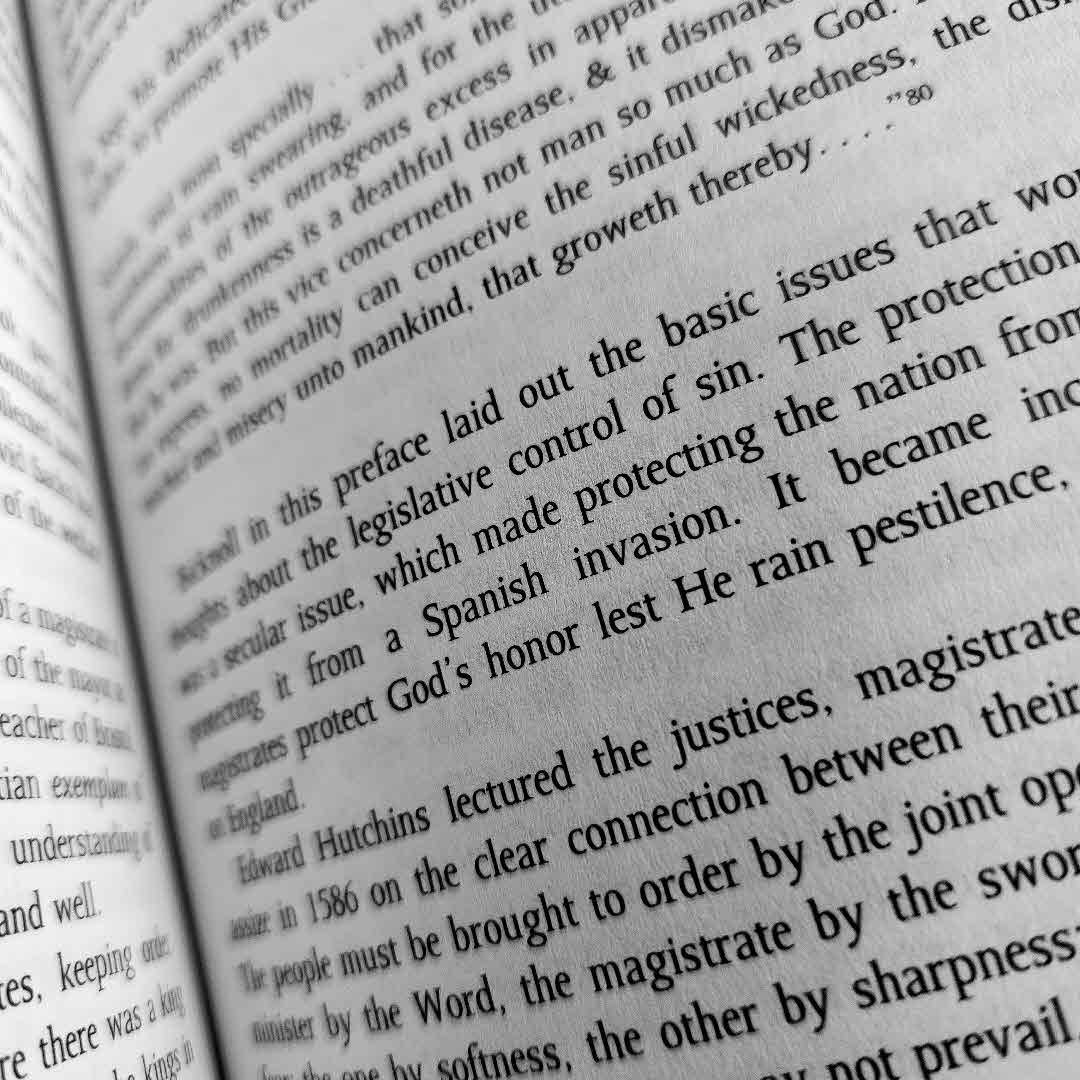
P. 165: The legislative control of sin: 'The protection of the Commonwealth was a secular issue, which made protecting the nation from God's wrath similar to protecting it from a Spanish invasion. It became increasingly important that magistrates protect God's honor lest He rain pestilence, famine, war, and recession on England.'
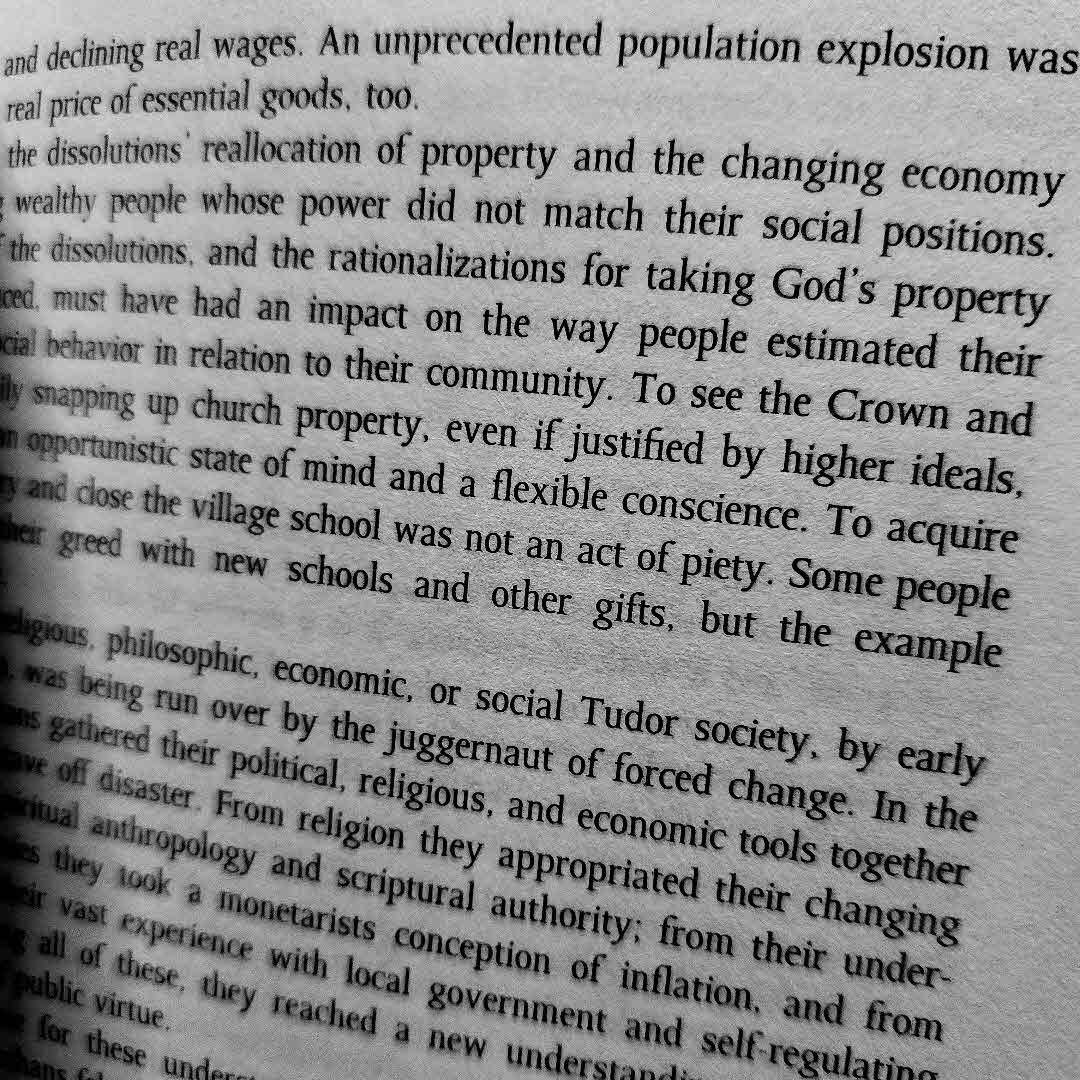
Page 157: 'To see the Crown and lay people greedily snatching up church property, even if justified by higher ideals, must have bred an opportunistic state of mind and a flexible conscience. To acquire a dissolved chantry and close the village school was not an act of piety. Some people tried to expiate their greed with new schools and other gifts, but the example remained negative.'
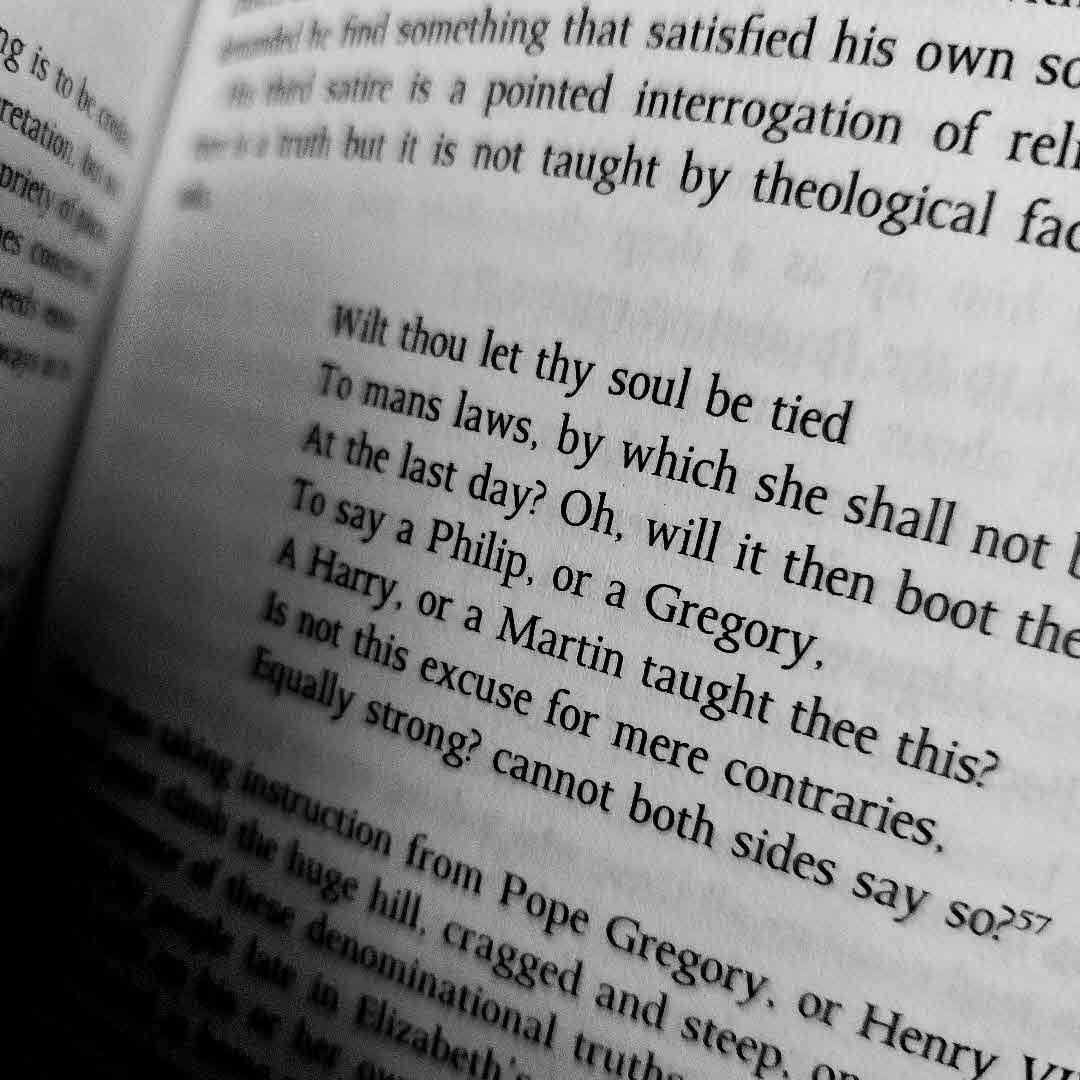
Page 153: '[John Donne's] third satire is a pointed interrogation of religion, with its insistence that there is truth but it is not taught by theological factions. "Fool and wretch," he asks, ⬇️
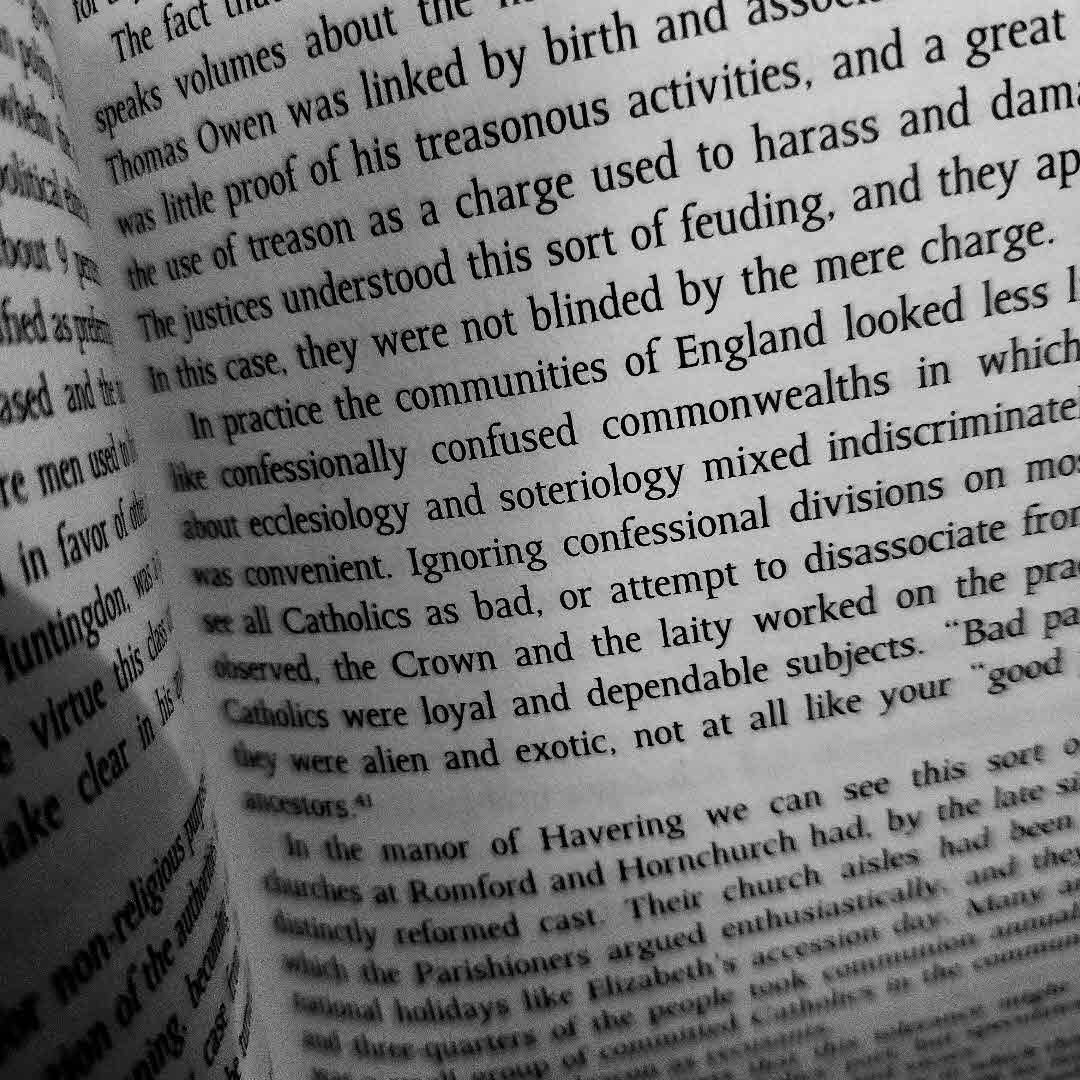
Page 147: 'In practice the communities of England looked less like the New Jerusalem than like confessionally confused commonwealths in which people of various opinions about ecclesiology and soteriology mixed indiscriminately and used religion when it was convenient.'
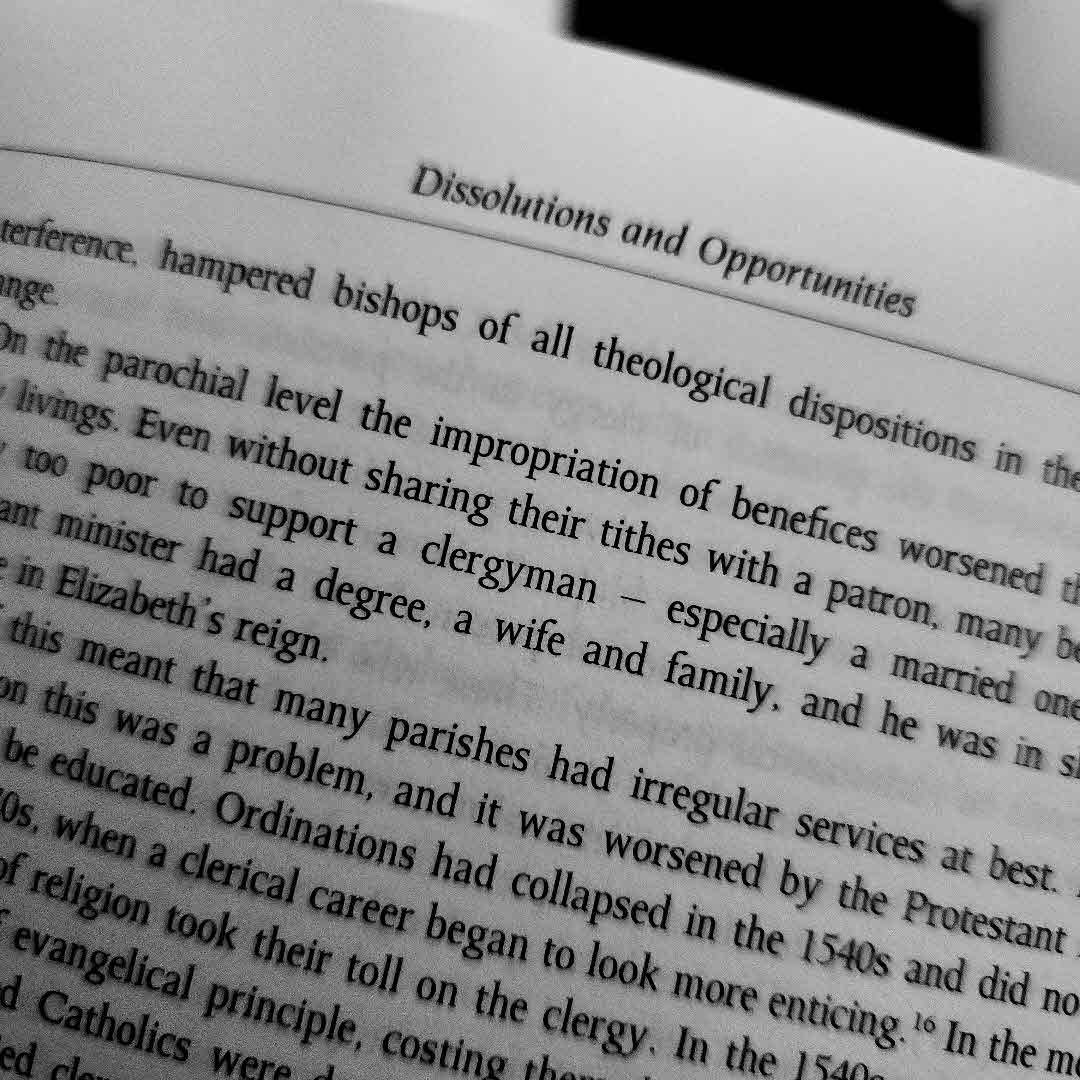
Page 65:
'The ideal Protestant minister had a degree, a wife and family, and he was in short supply until late in Elizabeth's reign.'
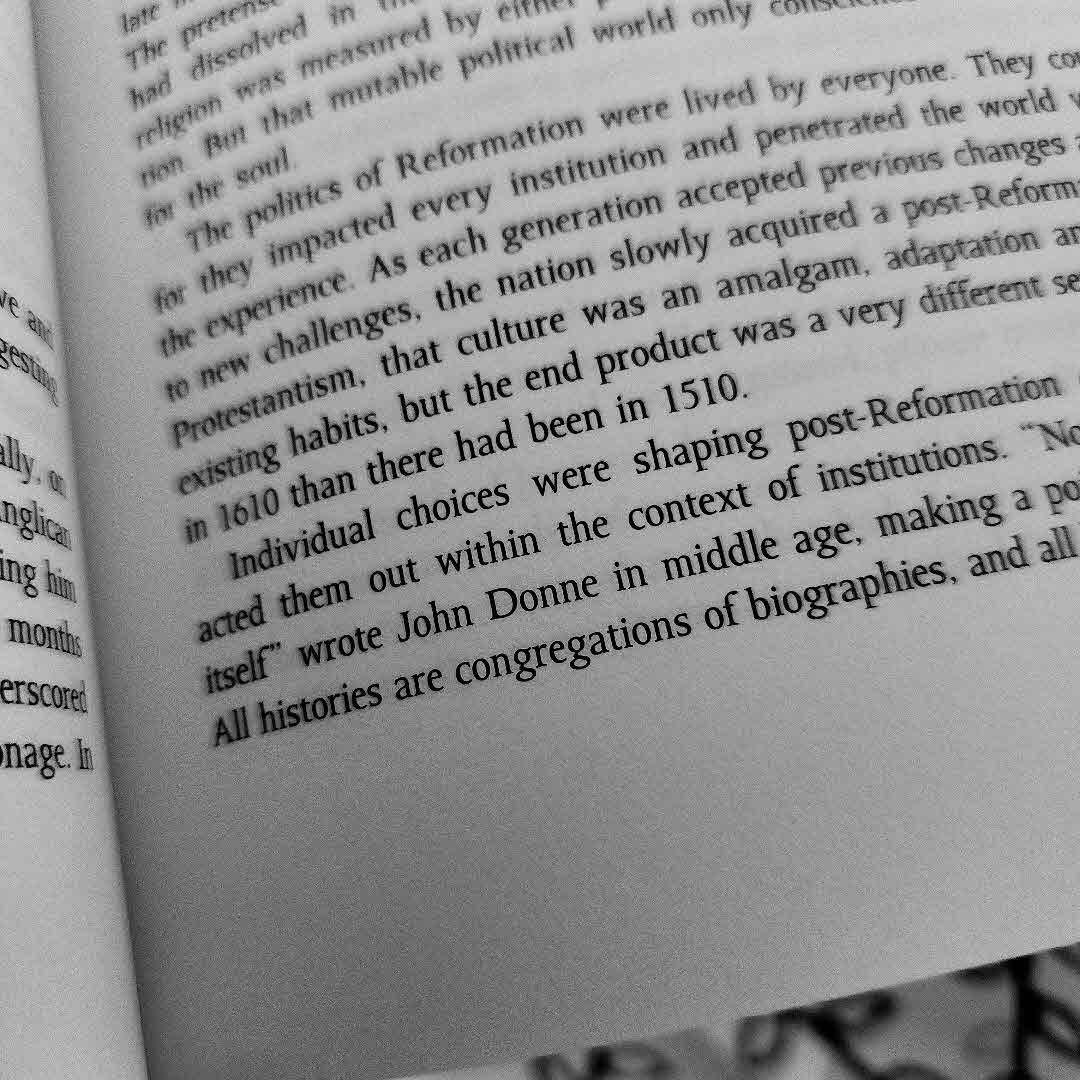
'"No man is an island, entire of itself" wrote John Donne in middle age, making a point historians must remember. All histories are congregations of biographies, and all biographers track their subjects through public spaces.'
I agree, and this is why I have always intershelved the histories and biographies in our home library.
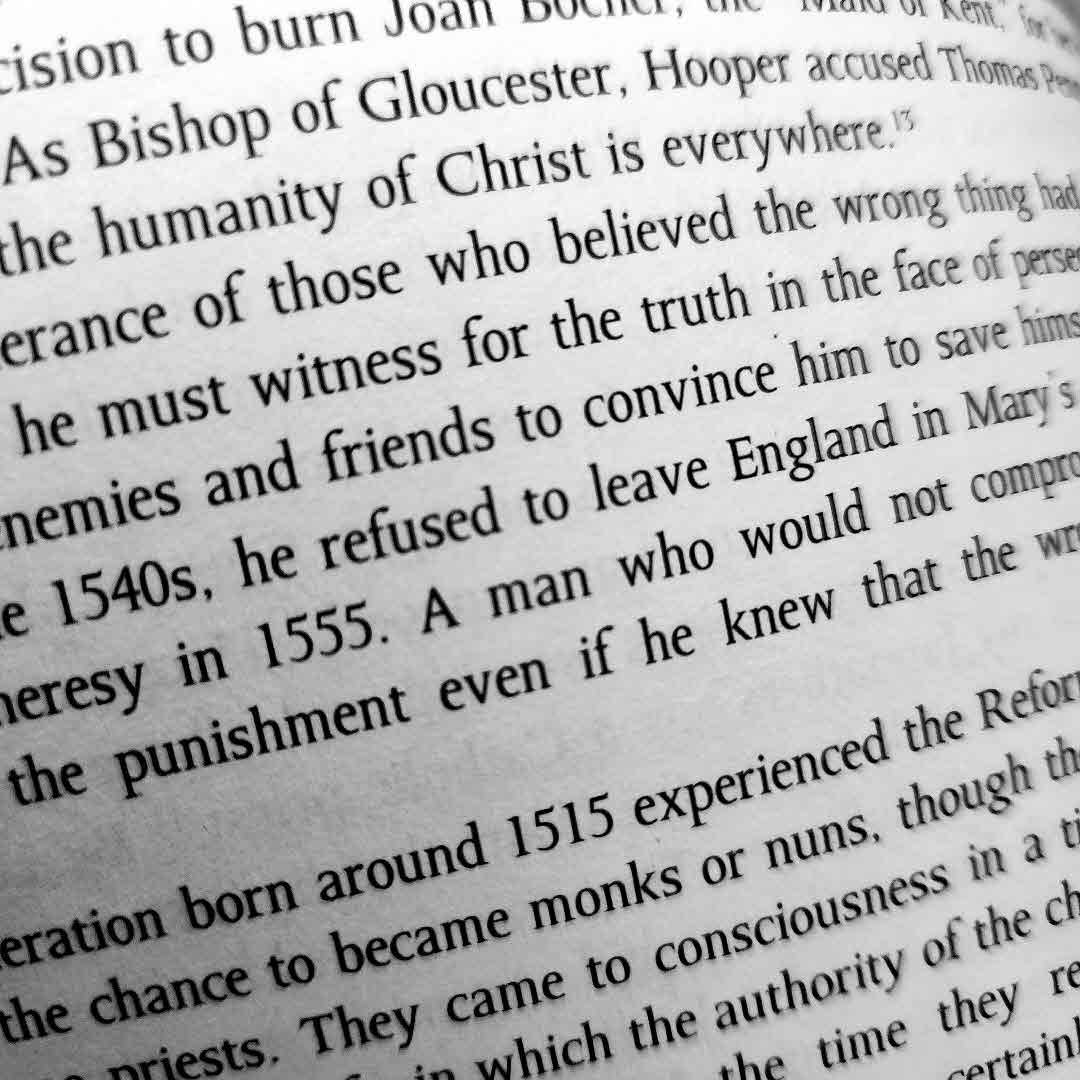
'[Bishop of Gloucester John Hooper] was burnt to death for heresy in 1555. A man who would not compromise, he undoubtedly approved of the punishment even if he knew that the wrong people were being burned.'